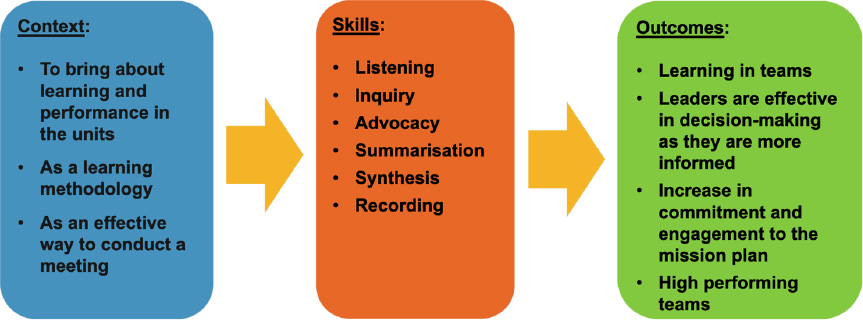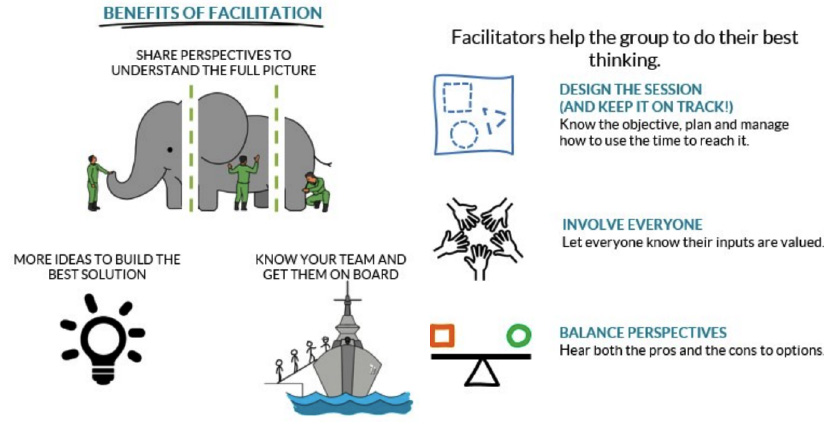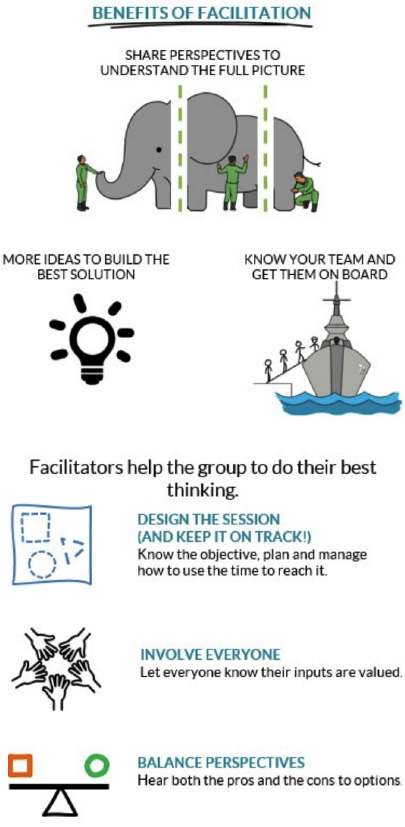Facilitation stems from the French word "Facile", which means "makes easy". In the SAF context, facilitation is key in building a higher quality of relationship and collective thinking within a team, for designing effective actions and delivering quality results.
In the SAF, Facilitation is defined as the practice to create effective team conversations by systematically harnessing diverse perspectives of the team, through a myriad of skills, tools and methodologies, to converge for the outcomes of learning, positive experience and collective action for mission success.
Facilitation is a core practice that enables Commanders to work with their teams and to help them learn. Facilitation helps the Commander draw out diverse perspectives from team members to influence and create collaboration for effective team learning and performance. At the same time, this enables the Commander to build commitment of his team and ensure achievement of shared goals. Hence, with facilitation skills, the Commander has a wider repertoire of conversational skills and tools, to be able to effectively lead his team in alignment to the organisational mission and goals.

Facilitation is useful when:
| 1. | There is diverse expertise within the team |
| 2. | Part or the whole team is new to the issue or topic of discussion |
| 3. | There is a need to build alignment |
| 4. | There is importance to build shared situation understanding |
| 5. | The tempo and time in training and operations allows for it |
In the SAF, Commanders will be expected to play the role of a Facilitative Leader. They will have to ensure that the process of the facilitated session is thought through and carried out, as well as contributing their content knowledge at the appropriate times. Commanders may pay attention to:
| • | Adherence to a set of agreed Group Guidelines fosters a greater sense of trust and provides the open learning space to surface the underlying assumptions and sharpen the focus of attention within the team on the issue |
| • | The Organisational Learning (OL) tool, Check-In Process, is also useful to support a generative conversation. |
| • | Assignment of specific roles such as Decision-maker, Co-facilitator and Recorder will enhance the learning process and be explicit about them. |
| • | The Commander, if also regarded as the subject matter expert, provides the context and guidance to ensure that the team stays on track. |
Facilitation is a key skill as part of the Action Learning Process for the purposes of team learning and team performance.
Facilitation can also be applied to a variety of settings in the SAF, for example, at work plan retreats, brainstorming sessions, training in schools and units, meetings, ops planning exercises, etc.


Additional Resource(s) Here: